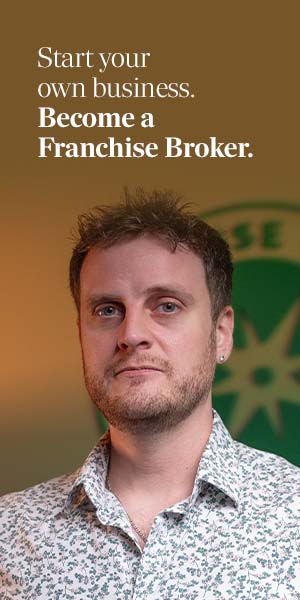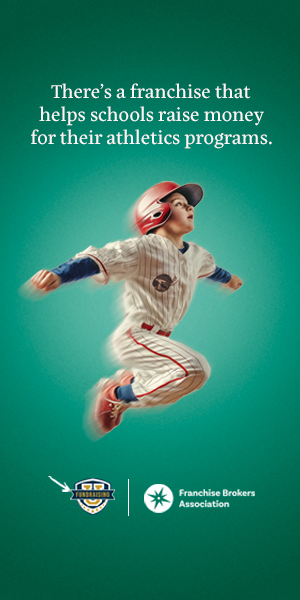In today’s fiercely competitive franchise sector—with thousands of brands vying for quality candidates and territory—one truth stands clear: franchise brokers are no longer optional. They’re strategic allies. And if you ask C‑suite executives at leading franchise brands what makes a broker indispensable, the answer isn’t just about leads—it’s about alignment, education, and trust.
This guide explores what franchise executives are really looking for in broker partnerships, why expectations are rising, and how aspiring franchise consultants can meet (and exceed) the standard.
The Broker Shift: From Salesperson to Strategic Partner
For years, brokers were perceived as independent intermediaries—helpful, sure, but mostly focused on introductions. That perception has changed.
Today, franchisors are navigating tighter regulations, rising customer acquisition costs, and more cautious, information‑savvy buyers. Conversion data across the industry consistently shows that broker‑sourced candidates convert at materially higher rates than most paid digital channels. But that value doesn’t happen by accident.
Modern franchisors want broker partners who act like embedded team members—fluent in brand story, unit economics, and market positioning—and who guide candidates with the same care the brand would.
“A strong broker partner is one who can articulate our mission and unit model better than some of our internal team.”
What the C‑Suite Values Most in Broker Partners.
The most respected franchisors no longer want surface‑level relationships. They want partners who think like insiders, strategize like developers, and communicate like brand advocates. Here’s what that looks like in practice:
1) Mastery of the Brand’s Business Model.
Executives expect brokers who understand the machine under the hood.
Unit economics: What drives revenue, margins, and breakeven; how new units ramp.
Operational model: Staffing, training cadence, supply chain, tech stack, and the brand’s “secret sauce.”
Ideal owner profile: Beyond financials—leadership traits, day‑in‑the‑life, sales aptitude, and cultural fit.
Competitive context: Differentiators, category benchmarks, and where the brand wins/doesn’t.
Action step: Internalize the FDD—especially Item 7 (investment), Item 19 (performance representations, when provided), and Item 20 (system growth). Build a one‑page “broker brief” for each brand you represent.
2) Candidate Quality and Cultural Fit.
Quality beats quantity—by a mile. Brands increasingly prefer a smaller number of well‑screened, pre‑educated candidates over a flood of unqualified leads.
Values alignment and service mindset (for service and B2B brands)
Operational readiness and support system (spouse/partner buy‑in, time availability)
Lifestyle expectations (owner‑operator vs. executive model; local presence vs. multi‑unit scale)
Realistic capitalization and access to funding
“We’re not just looking for capital—we want operators who reflect our vision. Great brokers make that match.”
— Development lead, national home services brand
3) Ongoing Engagement and Education.
Great brokers are students of the brand. They stay plugged into:
Updates: New offerings, promos, and marketing campaigns
Territories: Open/priority markets, transfer inventory, and area development strategy
Tools: Brand‑specific decks, videos, calculators, and CRM processes
Events: Discovery Days and regional roadshows
Action step: Block a monthly 30‑minute “brand sync” with the development lead to review pipeline, objections, and new messaging.
4) Regulatory Awareness and Compliance.
Compliance is table stakes—and a trust builder.
Understand the FTC Franchise Rule timelines and what can/can’t be said in marketing or conversations.
Track emerging state rules (e.g., registration/notice requirements for brokers) and adapt your outreach accordingly.
Log every material representation you make; align language with the brand’s disclosure.
“The risk isn’t just bad fits—it’s misrepresentation. Compliant brokers protect our brand.”
— VP, Franchise Development, national services franchisor
The Cost of Poor Broker Partnerships.
When brokers don’t meet expectations, the fallout is real:
Wasted time and resources across marketing, sales, and operations
Reputation damage with candidates and area developers
Internal friction between development and operations
Healthy partnerships, by contrast, create predictable deal flow and faster ramp times because candidates arrive informed and aligned.
How Top Brokers Build Trust (and Rise to the Top of the List).
The best brokers operate like brand ambassadors. They do more than refer—they prepare.
What top performers do consistently:
Host first‑calls that mirror franchisor discovery steps
Educate candidates on brand culture, expectations, and unit structure
Maintain rigorous call notes, next steps, and objection logs
Collaborate with franchisors on pipeline timing and ideal traits
Provide clean, complete candidate packages (resume, liquidity, location, timeline, motivation, spouse input)
How franchisors reward A‑list brokers: Priority access to updates, incentives, co‑marketing, faster feedback loops, and tighter alignment with executives.
KPIs That Matter (for Both Sides).
| KPI | Definition | Healthy Benchmark* |
|---|---|---|
| Lead‑to‑Intro Rate | % of referred leads that take a live intro call | 35–60% |
| Intro‑to‑Qualification | % of intros that meet brand’s agreed criteria | 50–70% |
| Qualified‑to‑Discovery Day | % of qualified candidates who attend DD | 25–40% |
| DD‑to‑Close | % of DD attendees who sign | 20–35% |
| Cycle Time | Intro → Close (days) | 60–120 days (brand‑dependent) |
| Data Hygiene | % of records with notes/next step in last 14 days | ≥ 90% |
*Benchmarks vary by category, price point, and sales model. Use these as directional targets and calibrate with each brand.
What Franchisors Expect from Broker Partnerships.
| Expectation | Description |
| Brand Fluency | Master FDD highlights, brand story, differentiators, and business model. |
| Candidate Pre‑Qualification | Assess financial, cultural, and operational fit before the hand‑off. |
| Compliance Awareness | Understand and follow franchise laws and FTC marketing standards. |
| Continued Brand Education | Stay current on changes, campaigns, and strategic priorities. |
| Long‑Term Partnership Mindset | Build trust, share feedback, and focus on shared outcomes over time. |
This reflects the broader shift from transactional lead generation to strategic partnership development. Brokers who meet these benchmarks are prioritized by brands and rewarded with deeper collaboration.
Common Broker Onboarding Tools Offered by Franchisors.
| Resource Type | Example Tools |
| Brand Sales Kits | Digital pitch decks, short explainer videos, success stories, calculators |
| Discovery Day Invitations | Meet executives, visit flagship locations, shadow top franchisees |
| CRM / Tracking Portals | Submit, track, and manage candidate status; shared notes and tasks |
| Weekly / Monthly Updates | Email briefings on campaigns, product/service changes, territory openings |
| Training Webinars | Live/recorded sessions on positioning, objections, and compliant messaging |
Tools vary by brand size, growth goals, and internal systems. Ask for access—and use them.
Compliance Quick‑Hits (for Brokers)
FTC Franchise Rule timelines: Don’t rush disclosure. Respect the 14‑day disclosure window and 7‑day agreement review period.
Financial performance: Only discuss Item 19 representations that are actually in the current FDD (or approved addenda), and avoid extrapolation.
State sensitivity: Some states require franchisor registration, and several require broker/agent registration or disclosures. Track where you’re marketing and adjust accordingly.
Record‑keeping: Keep written logs of material statements and documents provided.
Important: Laws evolve. Always verify current requirements with the franchisor’s counsel before marketing in a new state.
FAQs
Q1: How many brands should a broker carry?
Enough to serve a range of candidate profiles (investment levels, owner‑operator vs. executive, B2B vs. B2C), but few enough to maintain true brand fluency. Many elite brokers actively champion 6–12 brands at any one time and keep working knowledge of 20–30.
Q2: How do I present candidates so brands take me seriously?
Provide a concise one‑pager: background, motivation, liquidity/net worth, timeline, target markets, spouse/partner perspective, and top 3 questions. Include your assessment of fit and any red flags.
Q3: What’s the fastest way to get up to speed on a new brand?
Read the FDD cover‑to‑cover, attend the brand’s next training webinar, and schedule a 30‑minute enablement call with the development lead. Build and use a custom talk track within 7 days.
Q4: How can a new broker build trust quickly?
Start with one brand. Deliver two well‑qualified candidates with clean briefs in your first 60 days. Ask for feedback, iterate your messaging, and show up at Discovery Day.
Why This Matters for Future Brokers
If you’re considering franchise consulting as a career, this shift is both opportunity and responsibility. To thrive, you must:
Think like a strategist, not a salesperson
Learn to read and explain an FDD
Stay engaged with brand training and updates
Prioritize fit over speed
Do that—and you transform from a connector into a growth partner. In the eyes of the C‑suite, that’s the difference between being remembered and being relied on.
Chart Your Course in Franchise Brokerage
Franchise brokers play a central role in shaping business growth and personal transformation. To earn the trust of franchisors, operate like a long‑term advisor who understands the whole picture and protects the brand.
Ready to take the next step? The Franchise Training Institute can help you become a confident, well‑trained franchise broker, start your kourney today.




















